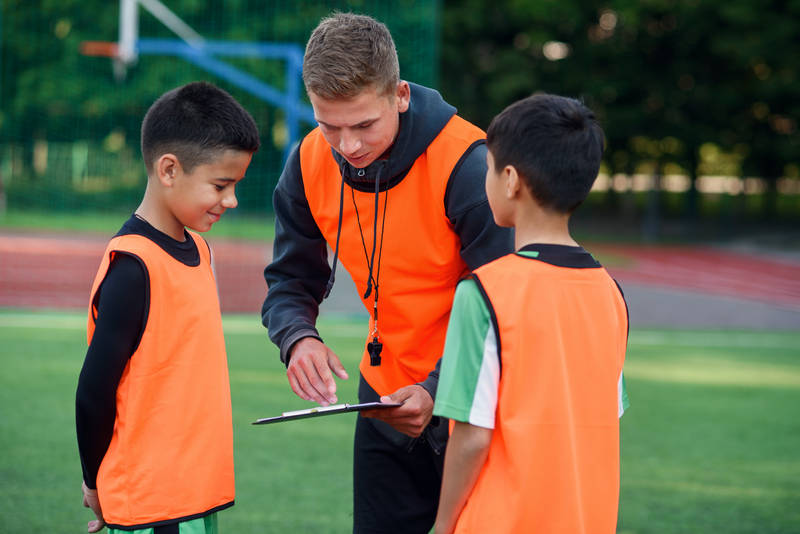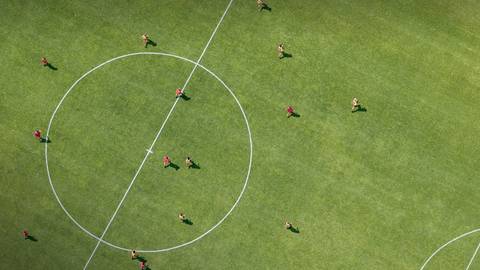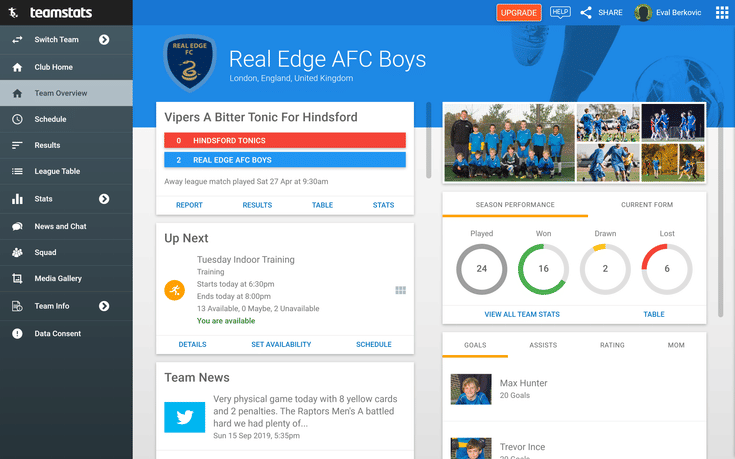U10 football represents a crucial developmental stage for young players between the ages of 9-10. At this level, children are building essential skills while enjoying the beautiful game without the pressure of league tables or excessive competition. U10 players focus on developing fundamental techniques, tactical awareness, and love for the sport through appropriately structured training sessions and friendly matches rather than competitive leagues.
In the UK, football (or soccer) for U10s follows specific guidelines designed to nurture player development. Children in this age group participate in smaller-sided games with modified rules that encourage more touches on the ball and greater involvement. They can take part in a limited number of trophy events throughout the season, but the emphasis remains firmly on skill development rather than competitive outcomes.
Coaching at the U10 level requires understanding the unique developmental needs of 9-10 year olds. Effective training sessions incorporate plenty of ball touches, fun activities that maintain engagement, and progressively challenging drills that build confidence. The right approach at this age establishes technical foundations and positive attitudes that will serve young players throughout their football journey.
Understanding U10 Football
U10 football represents a crucial developmental stage where young players begin to grasp more complex football concepts and refine fundamental skills. This age group sits at an important transition point between purely fun-based play and more structured tactical understanding.
Age Group Specifics
U10 players typically range from 9-10 years old and demonstrate significant cognitive and physical development compared to younger age groups. They can now understand and follow more complex instructions on the pitch. These players are increasingly capable of checking their shoulders before receiving the ball, letting the ball travel across their body, and making more deliberate turning movements.
Their attention spans have improved, allowing coaches to introduce more structured training sessions. A typical effective session might include 15 minutes of individual ball work (dribbling, juggling, turning) followed by 40 minutes of game-based activities where skills can be applied in context.
Players at this age also begin to understand positional play more clearly. Using training aids like corner flags to create passing diamonds (10-15 yards apart) helps them visualise spatial relationships on the pitch.
Developmental Focus
The primary focus for U10 players should be building technical proficiency and confidence on the ball. Coaches should prioritise skill development over competitive results at this foundation stage. This includes improving practical football knowledge and fostering creativity through varied practice scenarios.
Key skills to develop include:
- Basic dribbling with head up
- Short passing with both feet
- Receiving with different parts of the foot
- Simple turning techniques
- Introduction to basic defending principles
Tag games and small-sided matches (4v4 or 5v5) provide excellent learning environments. These formats maximise touches on the ball and decision-making opportunities. Players should rotate through different positions to develop a rounded understanding of the game.
Coaches should create a supportive atmosphere that encourages risk-taking with the ball. Building confidence through positive reinforcement is particularly important at this stage, as players develop both technically and emotionally.
Season Structure and Events
U10 football features a structured season designed to promote player development while maintaining a healthy balance between competitive play and skill acquisition. The season typically spans 15-20 weeks, with activities carefully organised to suit the developmental needs of young players.
League Format
In U10 football, traditional competitive leagues with published stats are not the norm in the UK. Children at this age group (9-10 years) do not participate in formal league structures with published tables or promotion/relegation. Instead, they engage in regular fixtures arranged in a development format, where the focus remains on skill improvement rather than results.
The typical format includes:
- Small-sided matches (often 7v7)
- Regular fixture days or mini-festivals
- Rotation of players across different positions
- Equal playing time for all squad members
- No published league tables or stats
FA guidelines recommend that matches be organised into development blocks, allowing coaches to focus on specific skills during different periods of the season.
Tournaments and Cups
U10 teams are permitted to participate in a limited number of competitive tournament events throughout the season. According to the search results, children can play in a maximum of three trophy events during the season, ensuring the competitive element remains balanced.
These tournaments typically feature:
- Short-format matches (10-15 minutes per game)
- Group stages followed by knockout rounds
- Modified rules appropriate for the age group
- Medals or small trophies as recognition
- Emphasis on fair play and positive participation
Many clubs organise their own end-of-season festivals, creating opportunities for players to experience tournament football in a supportive environment. These events often incorporate fun skills challenges alongside matches to maintain the soccer development focus rather than emphasising winning at all costs.
Coaching U10 Players
Effective coaching at the U10 level requires a balanced approach that focuses on skill development while nurturing a love for the game. Good coaches understand the physical and emotional development stage of 9-10 year olds and adjust their methods accordingly.
Training Techniques
U10 players are at a critical developmental stage where technical fundamentals should be emphasised. Small-sided games like 4v4 or 5v5 help maximise touches on the ball and decision-making opportunities. These formats encourage more involvement and prevent players from getting lost in larger matches.
Drills should be fun and engaging whilst incorporating core skills. Incorporate plenty of ball work with activities that improve dribbling, passing and receiving. Keep instructions simple and demonstrations clear.
Rotation of positions is crucial at this age. Even if a child shows aptitude in a particular position, allowing them to experience different roles develops their overall football IQ and prevents early specialisation.
Rest periods are important, but keep them brief. U10 players have abundant energy but shorter attention spans. Structure sessions with 10-15 minute activity blocks followed by short breaks.
Role of an Adult Member
As a coach or parent involved with U10 football, your primary responsibility is creating a positive environment. Children at this age are developing their football identity and self-esteem, which is significantly influenced by feedback from adults.
Provide specific encouragement rather than general praise. "Great job keeping your head up while dribbling" is more valuable than simply saying "good job." This helps players understand precisely what they're doing well.
Coaching should occur at appropriate moments. Guide players who don't have the ball and offer instruction before situations develop rather than shouting during active play. This approach helps develop independent thinking.
Patience is essential. Development happens at different rates, and the focus should be on individual progress rather than comparing players. Celebrate improvement over results.
Balance competitive elements with development goals. While winning is motivating, provide opportunities for all players to gain match experience regardless of ability level.
Show less











